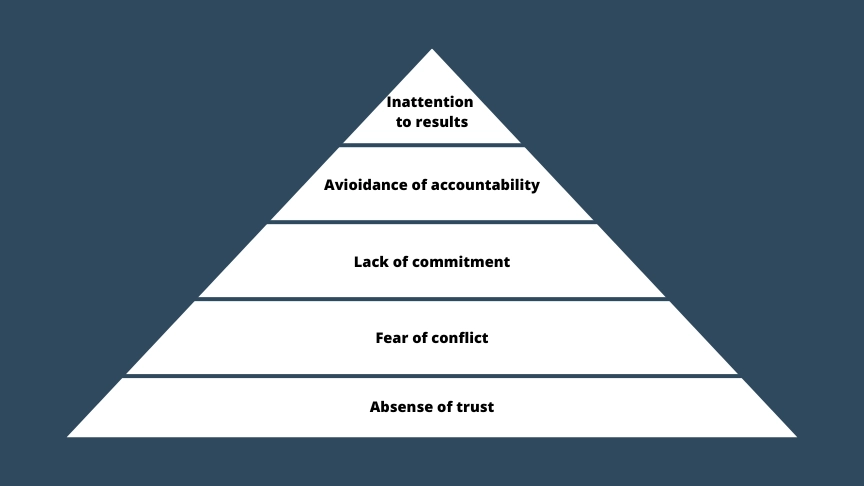Building a High-Performance Team: The Importance of Attention to Results
Building a High-Performance Team: The Importance of Attention to Results
Introduction
When a team is not functioning well, it is often because the members are more concerned with their own goals than the team's goals as a whole. To be successful, a team must have a strong focus on achieving specific objectives and precise outcomes. This requires a commitment to the collective goals of the group and a dedication to achieving high-performance levels.
In this blog post, we are going over the fifth dysfunction of dysfunctional teams, as written in the book "The five dysfunctions of a team" by Patrick Lencioni.

Causes of Inattention to results
Lack of accountability
When team members are not held accountable for their contributions, they focus their energy on something other than the team's common goals. Their own success and the advancement of their own selves or department. An absence of accountability invites team members to put their energy elsewhere.
Read more on how to create more accountability within your team.
Lack of clear goals and objectives
Clearly defined goals are a must to keep your team focused and committed. When team members sense that the path to their north star is lost due to the absence of goals and objectives. Team members will wander off and put energy into the wrong projects.
Lack of commitment from team members
You cannot cross the ocean with a team without commitment. The team will go very slowly when people stall on decisions and always need compromises and certainty to move further.
Here is how you can create more commitment in your team.
Consequences of Inattention to Results
How would you feel if, quarter after quarter, you missed the goals with your team? Disappointed, unmotivated? I'd get that. It's not fun to see no progress and face the quarter's failure. Your team members will probably feel the same.
Do you know what is even more dangerous than missing objectives? Not caring about it or seeking attention other than the collective goal, such as winning as a department. Well, let me tell you something. There is no winning as a department within an organization. There is only one way to win: with the whole organization.
Eventually, when the team is focused on something other than the collective goal, it comes down to 2 candidates:
Team Status
For some members, it satisfies them enough to be part of the group. The achievement of collective results is not desirable and is a bonus. Common organizations falling prey to this dysfunction are non-profits, political groups, academic departments, and prestigious companies.
Individual Status
This is the most toxic dysfunction there is. People that care about their individual status will throw you under the bus to keep their position. They would let the team fail for their own career development.
Strategies for Overcoming Inattention to Results
Fear, not my fellow humans. For every obstacle, there is a solution. Here are some things you can do to create more attention to the results.
Establish clear goals and objectives publicly
As a team, you need to know where you are going. Create clearly defined outcomes and the steps you need to take to achieve meaningful objectives.
A great tool is to use a roadmap for your team. Publish this roadmap publically, so everyone is accountable. You should review your goals and objectives for every decision you make as a team. Ask yourself if the decision that you are making is helping to reach your goals.
Reflect with your team regularly on the goals they've set in the form of a retrospective.
Conclusion
A team focused on a common goal will achieve far better results. Performing on a high level will be the default! This is because team members are more committed to the team's goals and are motivated to put in the necessary effort to achieve them. It will lead to a greater sense of accomplishment among team members. This will boost morale and encourage team members to continue striving for success.

